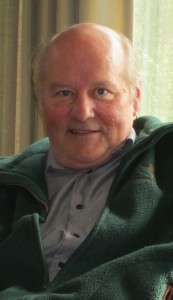BURLINGTON, ON. August 1st, 2013. The Council of the Federation, created in 2003, is a venue for the 13 provincial and territorial jurisdictions in Canada – to discus and resolve on federal-provincial and other inter-jurisdictional matters. Last week Ontario Premier Kathleen Wynn hosted the regular summer get-together at Niagara-on-the-Lake.
There were some modest accomplishments. The Premiers unanimously called on the federal government to conduct an inquiry into the mysteriously missing and/or dead aboriginal women (over 500), following up on a similar request from the National Aboriginal Organization. And for some reason, the premiers’ call was immediately rejected by the federal government.
Progress was made on energy issues, as all but two leaders signed onto an evolving national energy strategy led by Alberta’s Premier Alison Redford. Only B.C., concerned about the proposed Northern Gateway project and Quebec, in the process of suing Nfld over the Muskrat Falls power project stayed away from signing.
Overwhelming consensus came as the leaders jointly condemned the proposed ‘Canada Jobs Grant’. I have been critical of the federal government in the past, and it is because they keep doing things like this. Education and training is primarily provincial jurisdiction, so the fed’s role has traditionally been to top-up provincial programs, acknowledging that local needs are best met by provincial programs. Quebec, in particular, is very sensitive to the feds interfering. https://www.theglobeandmail.com/news/politics/at-summit-canadas-premiers-take-on-a-crowded-agenda/article13412119/#dashboard/follows/.
Regardless, the feds talked with some private sector organizations and then created, what the provinces call, an unworkable ‘one-size-fits-all’ program. And talk about wasting our money, the federal government spent $95,000 per ad for all those ads you had to sit through during the playoffs this year, announcing a program that doesn’t exist, is still a concept and may never see the light of day. And, insult-to-injury, they hadn’t even bothered to consult with the provinces, who are expected to pay for a third of the program. Oh, and the reason for that is because they plan to slash their training contributions to the provinces.
The Council of the Federation’s first big success was in negotiating with Paul Martin to get the Canada Health Accord. Martin had earlier slashed federal payments to provinces, in order to slay the Mulroney-era deficits and the Council needed something more sustainable. And they got the 2004 Canada Health Accord, with guaranteed increases in federal funding until 2014.
That was then and this is now. In total contrast, last year, the ruling Conservatives tabled their plan for health care funding for the decade post 2014. There was no negotiation, just an offer, fait accomplis – take it or else… The Council of Canadians lobby on social issues, particularly health, and had arrived en-mass to rally the Council to press on for a better deal. But the feds weren’t open to discussion – the door was closed.
The premiers also discussed the Senate. There are so many inherent problems with the Senate but reform to a triple-E body, as the PM has asked the Supreme Court to consider, would not make it any better. Would an elected senator best represent the interests of his/her province – better than the provincial government? What if they were at odds? Is this a recipe for a constitutional crisis, pitting one level of government (fed senate) against a provincial government from which the senator was elected? There is already confusion over the sometimes competing roles of the Commons and appointed Senate – imagine if senators were also elected?
It was a missed opportunity for a provincial/territorial ask. Abolish the Senate, don’t reform it. And give due recognition to the Council of the Federation as a consultative body when developing public policy. What could be more vital to this nation’s future than inter-jurisdictional cooperation and what better body to do that than the Council? Imagine if they met more often. I mean even separatist Pauline Marois was happy to participate, discuss and resolve with her fellow Premiers.
How much government do we really need anyway, and does more government mean better government? If I put that question to Steven Harper, I think we’d all know his answer. So, why not do it – why not make government smaller? Put the $100 million we would save by abolishing the Senate into provincial health care programs instead.
The Council of the Federation exists. It offers vital political tension for the confederation. And it could be a useful political ally to a federal government that wants to represent all of Canada and wants to make Canada work better. Indeed the Council would be a better chamber for that ‘sober second thought’ than the dusty, corrupt, old Senate ever has been.
 Ray Rivers was born in Ontario; earned an economics degree at the University of Western Ontario. He taught in New Zealand and earned a Master’s degree in economics at the University of Ottawa. His 25 year stint with the federal government included time with Environment, Fisheries and Oceans, Agriculture and the Post office. Rivers left the federal government to consult for private sector and government clients. He completed his first historical novel The End of September in 2012; a story about what might have happened had Quebecers voted for sovereignty association in the 1980 referendum. Rivers is active with ratepayers groups, a food bank, environmental organizations, community journalism and policing. He has run for municipal and provincial government offices and held executive positions with Liberal Party riding associations. He developed the current policy process for the Ontario Liberal Party
Ray Rivers was born in Ontario; earned an economics degree at the University of Western Ontario. He taught in New Zealand and earned a Master’s degree in economics at the University of Ottawa. His 25 year stint with the federal government included time with Environment, Fisheries and Oceans, Agriculture and the Post office. Rivers left the federal government to consult for private sector and government clients. He completed his first historical novel The End of September in 2012; a story about what might have happened had Quebecers voted for sovereignty association in the 1980 referendum. Rivers is active with ratepayers groups, a food bank, environmental organizations, community journalism and policing. He has run for municipal and provincial government offices and held executive positions with Liberal Party riding associations. He developed the current policy process for the Ontario Liberal Party

















Good article Mr. Rivers.
Interesting thoughts on a potential and stronger role for the Council of Federation.